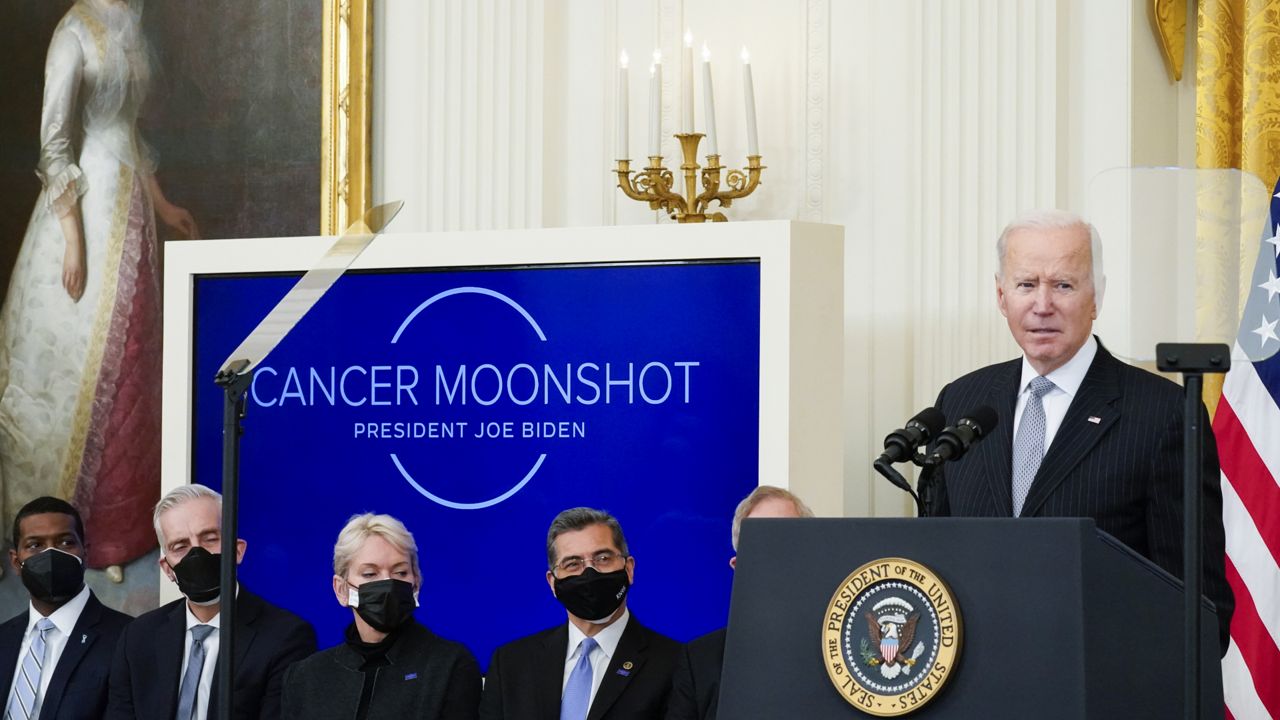President Joe Biden on Wednesday announced four members who will serve on his Cancer Cabinet, part of the Cancer Moonshot initiative that dates back to his days as vice president under Barack Obama.
Biden restarted the effort in early February of this year, with a lofty goal of cutting cancer deaths in half over the next 25 years.
The four newly named individuals who will serve in the so-called Cancer Cabinet are Dr. Elizabeth M. Jaffee, who currently serves as the deputy director of the Sidney Kimmel Comprehensive Cancer Center at Johns Hopkins; Dr. Mitchel Berger, who specializes in operating on patients with brain tumors and Dr. Carol Brown, the senior vice president at Memorial Sloan Kettering’s Cancer Center.
NASA Administrator Bill Nelson will also join the Cancer Cabinet, per a separate release from the agency. Jaffee will serve as chair of the effort, per the White House.
“Far too many Americans have been touched by cancer. Ending cancer as we know it has the power to save lives, unite our country, and inspire the world,” Nelson wrote in a statement. “It is a mission that represents NASA’s ambition to propel humanity forward – for science, for healing, for hope.”
On Wednesday, first lady Dr. Jill Biden joined members of the Cancer Moonshot effort and other administration officials for a closed-door meeting to better outline priority actions for the effort.
The newy-reignited initiative will focus on:
Closing the screening gap by creating targeted programs to expand nationwide access for early cancer detection
Working to understand and mitigate how toxic environmental exposures contribute to cancer diagnoses
Decreasing the amount of preventable cancers through public health education and outreach campaigns
Investing and supporting research and development to prevent, detect and treat all forms of cancer
Easing the burden on cancer patients and their caregivers by expanding access to treatments, screenings, trials and quality care
Those pillars seek to spur on the work announced by Biden earlier this year, which came without any new money and more than 50 years after President Richard Nixon signed the National Cancer Act to launch a war on the disease.
"Just as we harnessed science to develop cutting-edge COVID-19 vaccines and treatments, we'll bring a fierce sense of urgency to the fight against cancer," President Biden said in announcing the renewed effort this year. "It's bold. It's ambitious. But it's completely doable."
The issue is one near and dear to the president’s heart: Biden’s son, Beau, died in 2015 from an aggressive form of brain cancer.
In 2016, the year after Beau’s death, then-President Barack Obama called upon his vice president to lead the nascent moonshot program, with the goal of achieving “a decade’s worth of advances in cancer prevention, diagnosis and treatment.” Congress allocated $1.8 billion to the program over 7 years; roughly $400 million in funding remained as of February.
And cancer is a pain shared by millions of Americans across the country: According to an estimate from the American Cancer Society, there will be nearly 2 million new cancer cases this year, and more than 600,000 deaths from the disease.
The revamped program’s other goal is improving the experience of people and families living with and surviving cancer, with the ultimate aim of “ending cancer as we know it,” Biden said months ago.
The Associated Press contributed to this report.



